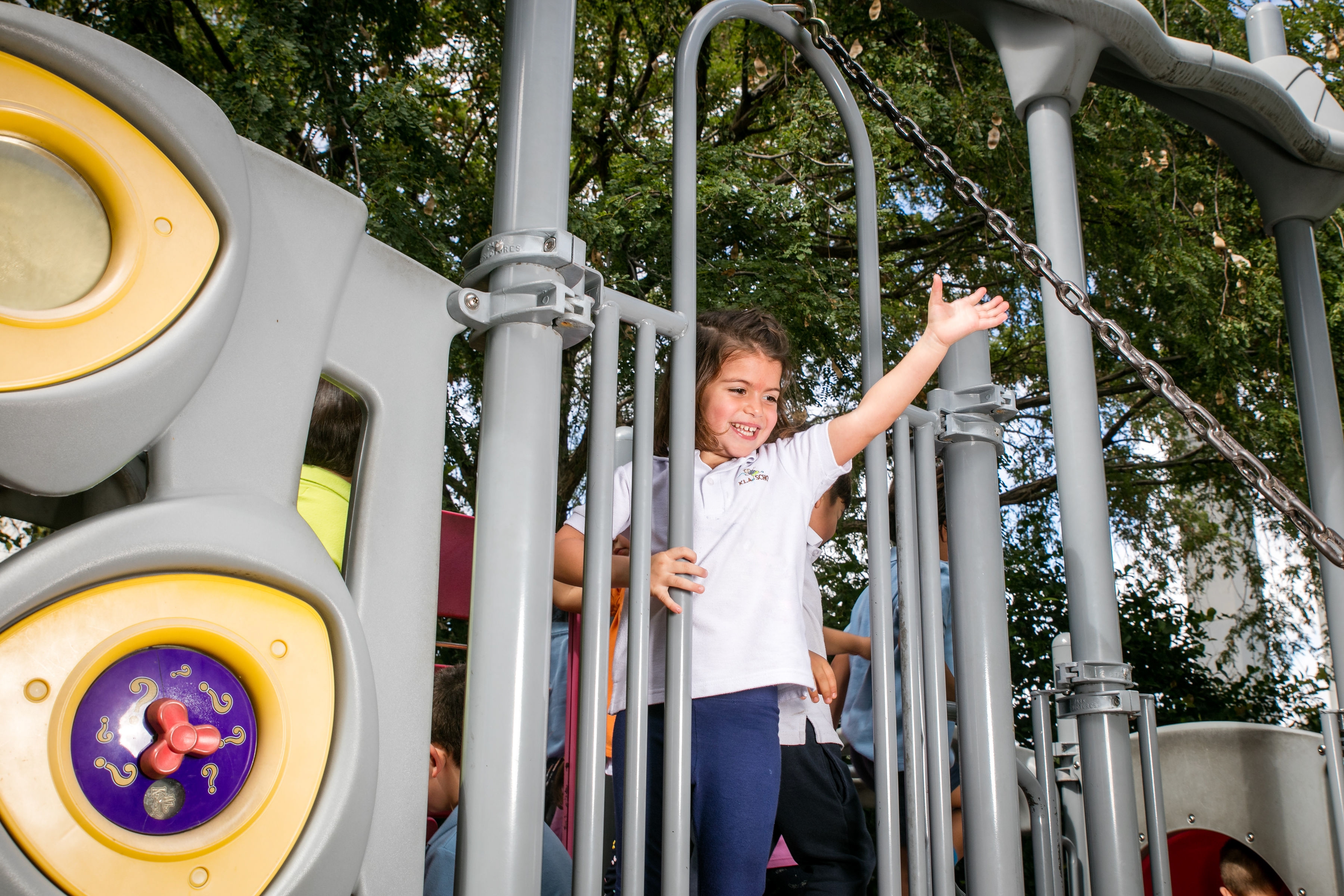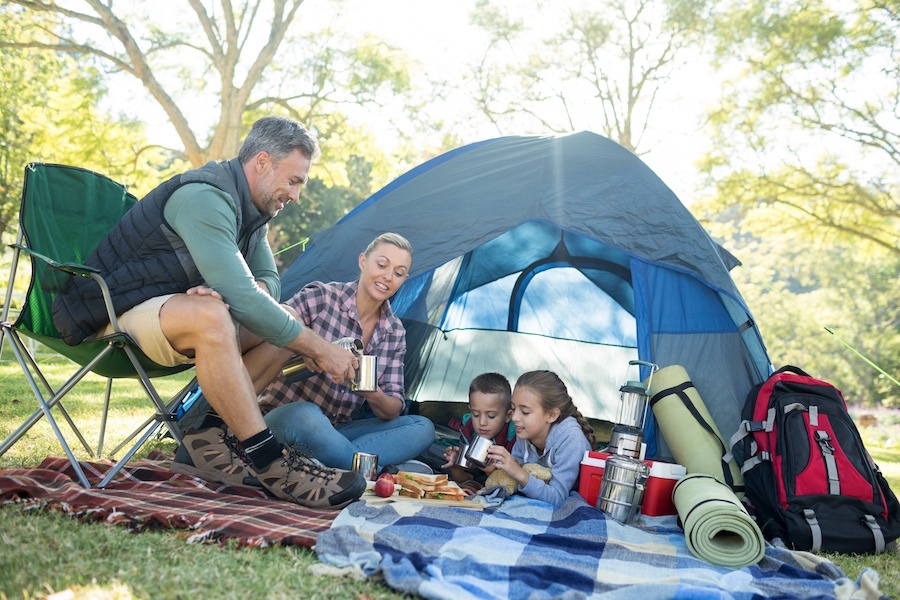Camping with Kids? Here's What You Should Know
Topics: Outdoor Activities
Age Range: Preschool
Camping is a classic summer activity that the whole family can enjoy. Many parents of young children who enjoyed camping in the past may wonder how they can continue the activity with their child. Here are some things to keep in mind to help your camping experience run smoothly.
- Research in advance. Spontaneous camping trips might have made sense before kids, but planning ahead will help you find a campsite that has all the features you need. This way, you can all focus on having fun. Visit Reserve America and gov to search for campsites near you.
- Camp in the backyard first. It may not be as exciting as the woods, but doing a trial run in your backyard or a family member’s backyard can be useful. Your child can get a sense of what sleeping in a tent will be like, and you can figure out what you might need to tweak for the real thing.
- Bring clothes for all weather. Even if the forecast calls for sunshine, you don’t want to be caught unprepared if the weather changes. Pack warm clothes for chillier evenings, and bring rain gear just in case.
- Organize your supplies. Parents of young children know that meltdowns can happen fast, so be sure to organize your camping supplies well. Sort everything by categories, such as Clothes, Toys, Food, and Cooking, and label each container or bag well. Ensure that the most vital containers are the most easily accessible.
- Keep clean. Many parents find it helpful to bring extra jugs of water, towels, and soap solely for hand and face-washing. If you have an infant or a small child, a plastic tub can serve for a quick bath. Antibacterial wipes are also a good idea for quick cleaning jobs, such as cleaning your child’s feet before climbing into the tent.
- Teach camping safety. Before you leave, have a conversation with your child about the environment you’re visiting, and make sure they know the rules for keeping safe around campfires, wildlife, and water. Give them a whistle to wear around their neck in case you get separated. Additionally, you may want to bring some glow sticks or headlamps for your child to carry or wear at night.
- Bulk up your first-aid kit. Some camping-specific items you may need include hand sanitizer, tweezers, antibiotic cream, bug spray, sunscreen, bandages, gauze, and medication for pain, allergies, and digestive issues.
- Let your child bring comfort items. Camping is exciting, but many children can also find it overwhelming. It can help if your child brings a comfort item from home, such as a favorite book, blanket, or toy. Because camping can be full of activity, it’s best if this item isn’t irreplaceable.
- Bring camp-friendly toys and games. Spending time in the great outdoors is an ideal opportunity for your child to enjoy fun and educational activities. Many family-oriented campsites have designated locations for games such as badminton and horseshoes, and you can bring card games, coloring books, sidewalk chalk, water toys, and binoculars. It’s also an ideal opportunity to help your child learn more about the outdoors.
- Keep it simple at first. Many families make camping a yearly tradition, with elaborate meals and multiple activities. However, at the beginning, it’s best to take it easy. For your first few trips, cook simple meals and don’t overload your child with activities. Soon enough, your child will become accustomed to camping, and you can expand upon your activities. It may also be a good idea to save true wilderness camping until your child is older, until you have a better sense of what the experience will be like for them.
Camping as a family is an ideal opportunity to create lasting memories. With these tips, you can ensure that the experience will be fun and stress-free for everyone.

